Curriculum
/prod01/channel_2/media/mccms/content-assets/academics/residencies-and-fellowships/nephrology-fellowship-minnesota/neph-flshp-mn-1024X512-WF3232170-0769.jpg)
Clinical training
The large volume and broad range of patients seen by Mayo Clinic nephrologists ensure an optimal clinical experience. Nephrology outpatient clinics and hospital services at Mayo Clinic Hospital — Rochester, Saint Marys Campus, and Mayo Clinic Hospital — Rochester, Methodist Campus, are very active and are supported by state-of-the-art clinical laboratories devoted to special renal function testing and renal pathology. Additionally, our fellows have ample opportunities in telehealth including telemedicine and electronic consultation (eConsult).
Rotations
Year 1
- Introduction to Nephrology
- Mayo Clinic Hospital — Rochester, Saint Marys Campus (non-ICU) Consult Service
- Mayo Clinic Hospital — Rochester, Saint Marys Campus Nephrology ICU Consult Service
- Mayo Clinic Hospital — Rochester, Methodist Campus Nephrology Consult Service
- Kidney and Pancreas Transplantation - Outpatient and Inpatient Services
- Home Dialysis Clinic
- Outpatient Fellows Continuity Clinic
- Subspecialty Clinics (glomerulonephritis, hypertension, onco-nephrology, ADPKD, nephrolithiasis, transplant clinic)
- Outpatient In-center Hemodialysis Clinic
- Home Peritoneal Dialysis and Hemodialysis Clinic
- Renal Function Laboratory - Renal Physiology
- Renal Pathology Laboratory - Renal Biopsy and Interpretation
- Tissue Typing Experience
- Elective
Year 2
The Nephrology Fellowship at Mayo Clinic in Rochester, Minnesota, is a testament to the institution's commitment to excellence in medical education, clinical practice, and research within the field of nephrology. Tailored to meet the varied career aspirations of its fellows, the program offers a rich blend of clinical practice, research, and education, ensuring a comprehensive learning experience. Fellows are encouraged to explore both investigative and clinical nephrology pathways, with a curriculum designed to enhance their expertise in areas such as:
- Glomerular Diseases, Advanced Track (Certificate Awarded)
- Obstetric Nephrology and Hypertension, Advanced Track
- Home Dialysis, Modalities Advanced Track
- Nephrolithiasis, and Bone Mineral Disease Advanced Track
- Research Advanced Track
During year two, you will have the opportunity to customize your educational experience to focus on additional clinical training in one of the advanced tracks while also conducting research within that focus. You will also participate in teaching Mayo Clinic Alix School of Medicine students during their Renal Block.
Glomerular Diseases Advanced Track (Certificate Awarded)
While on this rotation, you will work with our glomerulonephritis specialists, Drs. Fernando Fervenza and Ladan Zand, seeing patients and conducting research related to glomerular disease. Please see our GN Fellowship Website for more information.
Video: Glomerular Diseases Research Opportunities
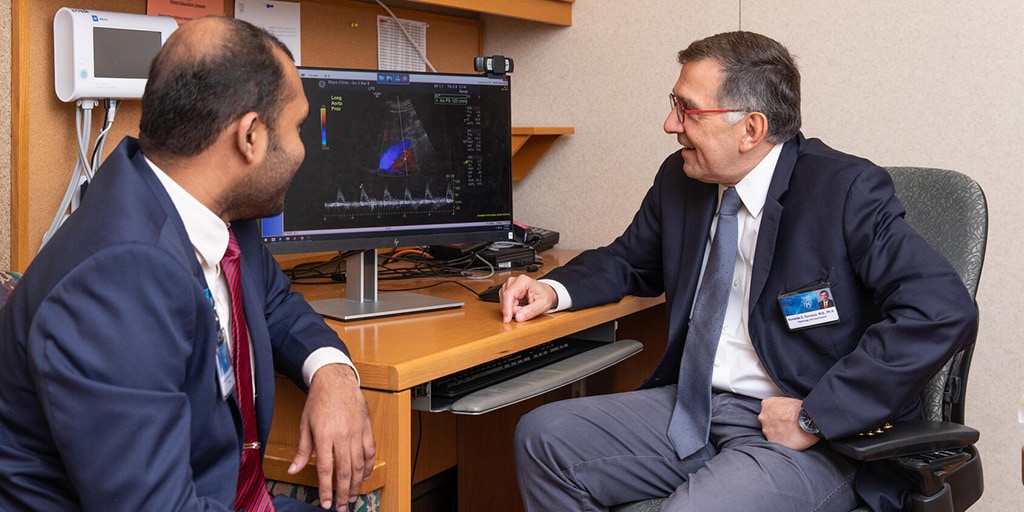
Obstetric Nephrology and Hypertension Advanced Track
Chronic Kidney Disease (CKD) affects up to 6% of women of childbearing age in high-income countries and is estimated to affect 3% of pregnant women. Advanced renal dysfunction, proteinuria, hypertension, and poorly controlled underlying primary renal disease are all significant risks for adverse maternal, fetal, and renal outcomes. The increased awareness of the role of chronic kidney disease in pregnancy has recently sparked interest and redesigned the role of the nephrologist in this context.
Obstetric Nephrology and Hypertension is a developing field, and our division is fortunate to have world-renowned experts in this area. While on this rotation you will learn from Drs. Vesna Garovic, Andrea Kattah, Lourdes Gonzalez, and Iasmina Craici. Additional training is required to achieve the necessary skills for the management of such complex patients.
Video: Obstetric Nephrology Research Opportunities
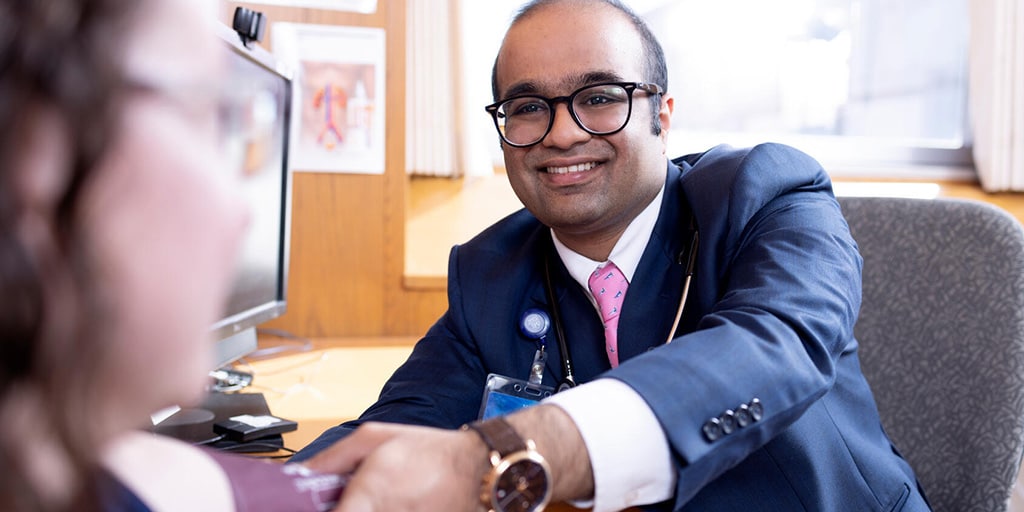
Home Dialysis Modalities Advanced Track
Notable trends in fellowship curricula include the expansion of education in home dialysis, driven by policy changes and focus on patient-centered care. One of the areas of growth for our Nephrology Division has been the Home Dialysis Program. During the one-year advanced track the trainees will have the opportunity to develop expertise in all aspects of dialysis, including modality education, transition of care to end-stage kidney disease, in-center dialysis with an emphasis on home dialysis, and dialysis access. In addition to clinical responsibilities, fellows will learn about administrative duties and how to develop and complete research projects to prepare them for successful careers as educators and leaders in the field of dialysis.
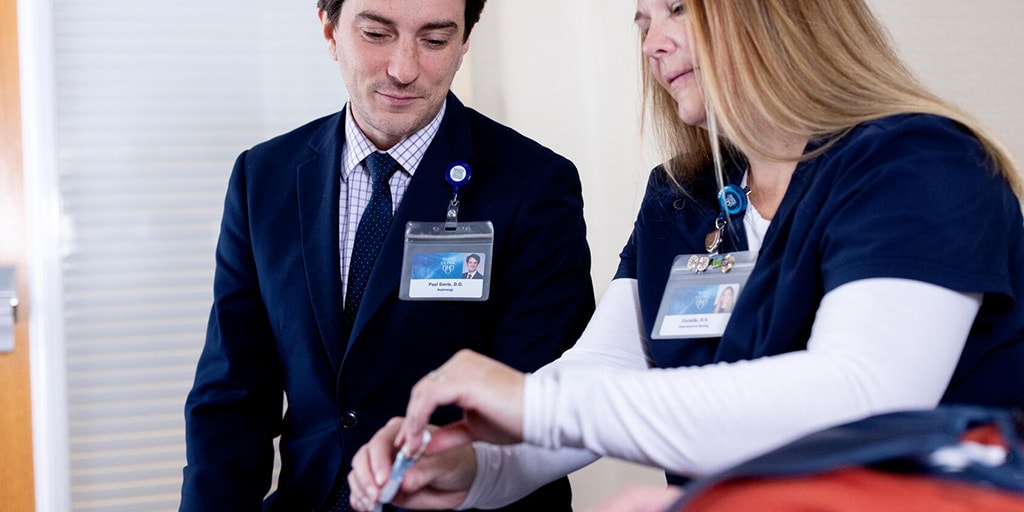
Nephrolithiasis and Mineral Bone Disease Advanced Track
Over the past four decades, the lifetime prevalence of nephrolithiasis has more than doubled in the United States (and several other developed countries), afflicting around 11% of men and 7% of women. Mayo Clinic is at the forefront of clinical practice and research in Nephrolithiasis and Mineral Bone Disease.
The O’Brien Urology Center is being led by Dr. John Lieske, a nephrologist, and Professor of Medicine in our Nephrology Division. The initiative of offering an advanced training fellowship in Nephrolithiasis and Mineral Bone Disease was unavoidable given the warring increase in the prevalence of the disease and the existing expertise within our Nephrology Division. The objectives are to offer an in-depth, integrated, multidisciplinary training, drawing on the latest research and recommendations for best practice in patient care. The one-year training will cover all the pathophysiology, clinical, biological, and therapeutic aspects of nephrolithiasis and related renal and extra-renal complications.
Video: Nephrolithiasis and Bone Mineral Disease Research Opportunities
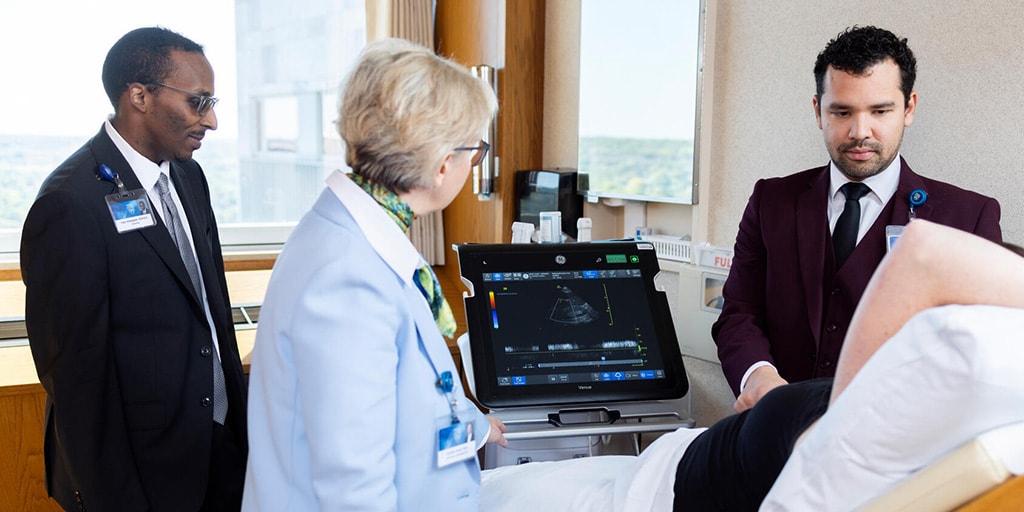
Research Advanced Track
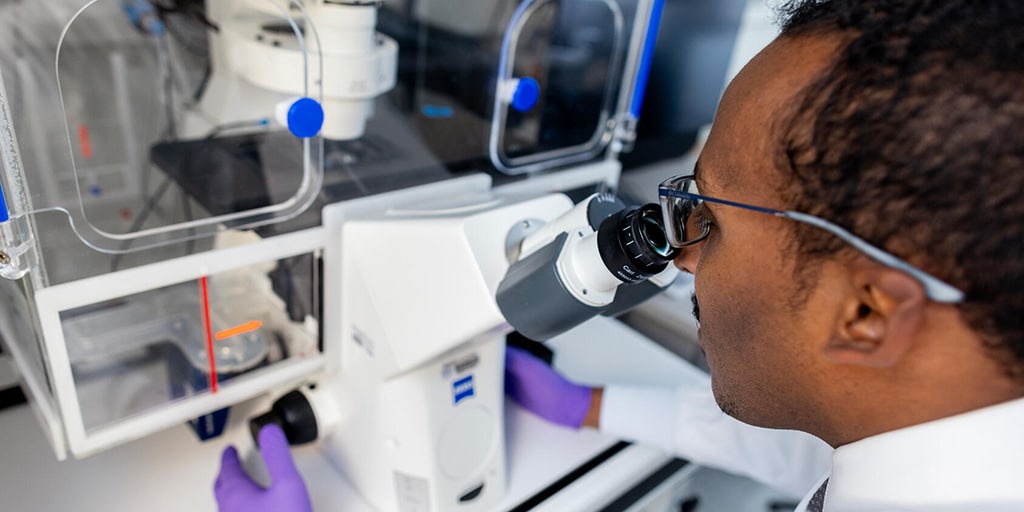
The Division of Nephrology and Hypertension has an internationally recognized research faculty. The Research Advanced Track, fully funded by Mayo Clinic, has consistently prepared interested fellows for competitive academic positions.
The research opportunities at Mayo Clinic stand out for their depth and breadth, underpinned by a significant annual research budget that includes a substantial portion of external grants and contracts. This investment creates an ideal environment for engaging in a wide array of research activities, particularly in basic science, translational research, and clinical innovations.
When you enroll in the Research Advanced Track, you will undertake an in-depth research project under the direction and supervision of a staff consultant. The goal is to eventually establish your independence as a full-time investigator in nephrology in an academic setting. The clinical experience is individualized to coincide with your career goals and to fulfill subspecialty certification requirements for nephrology.
Fellows who choose to complete the Research Advanced Track will have the opportunity to enroll in the Clinical and Translational Science (CCaTS) Certificate Program. The Division of Nephrology and Hypertension Research Committee offers the opportunity to receive full funding for the Certificate Program.
Fellows delve into the complexities of glomerular diseases, investigating their pathophysiology and seeking novel treatments for these conditions that affect the kidney's filtering units. The realm of onco-nephrology offers a unique intersection, where research focuses on renal complications in cancer patients, including the management of chemotherapy-induced nephrotoxicity and chronic kidney disease in survivors. Critical care nephrology research emphasizes renal support strategies for critically ill patients, exploring the ramifications of acute kidney injury on patient outcomes.
The field of obstetric nephrology addresses kidney diseases during pregnancy, including the study of preeclampsia and its long-term impacts on renal health. Additionally, studies in hypertension and kidney transplantation focus on the pathophysiology of high blood pressure, its effects on the kidneys, transplant immunology, and the intricacies of managing transplant patients.
The program also pioneers in areas such as the epigenetics of polycystic kidney disease, aiming to unravel the genetic and epigenetic mechanisms that contribute to its progression. Furthermore, research in hemodialysis and home dialysis seeks to enhance dialysis techniques, improving the quality of life for patients through innovations in care.
A significant area of emphasis is the application of artificial intelligence in nephrology, aiming to refine diagnostic accuracy, personalize treatments, and predict patient outcomes with unprecedented precision. Quality improvement initiatives within the program strive to elevate patient care standards, enhance treatment protocols, and streamline healthcare delivery, ensuring the highest levels of efficiency and effectiveness in nephrological practice.
Mayo Clinic further enriches its research portfolio with population-based studies and kidney stone research. These studies leverage the clinic's extensive patient database and research infrastructure to investigate the epidemiological aspects of kidney diseases, identifying trends, risk factors, and outcomes at a population level. Kidney stone research, in particular, focuses on understanding the etiology, prevention, and treatment of kidney stones, contributing valuable insights into this prevalent condition.
The supportive research environment at Mayo Clinic is characterized by an extensive infrastructure that includes over 400,000 square feet of laboratory space and a comprehensive network of research personnel and scientific faculty. This setting fosters collaborative and innovative studies, as evidenced by the initiation of numerous new IRB-approved human research studies. Dedicated research time is integrated into most residencies and fellowships, further enhancing the training experience and allowing fellows to contribute meaningfully to the advancement of nephrology. Through this multifaceted approach, the Nephrology Fellowship program at Mayo Clinic stands as a beacon of excellence, preparing fellows for distinguished careers in nephrology that are marked by clinical prowess, research innovation, and a profound impact on patient care.
Publication of research is supported by excellent editorial services. Trainees seeking independent investigative careers receive assistance in preparing research grants for funding.
Video: Nephrology Research Advanced Track Research Opportunities
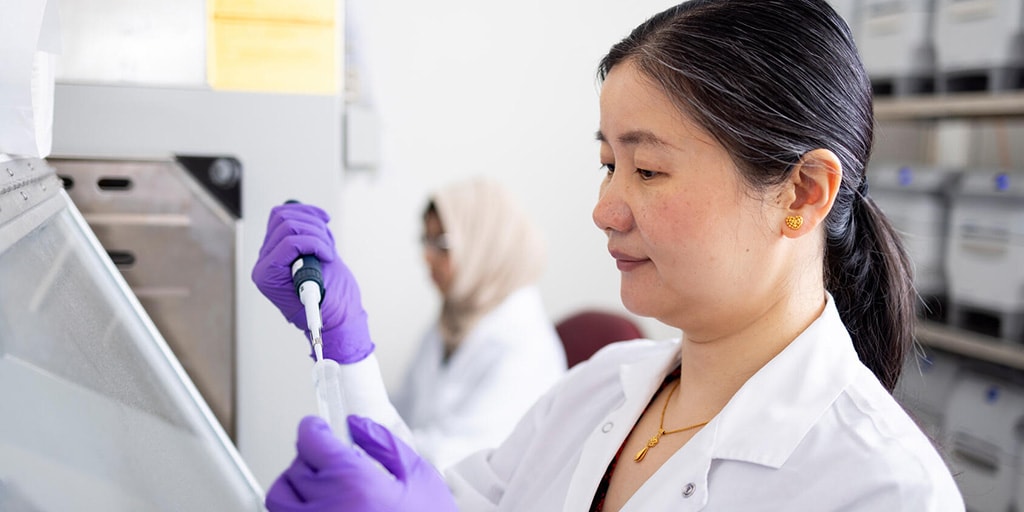
Year 3
- Mayo Clinic Hospital — Rochester, Saint Marys Campus (non-ICU) Consult Service
- During this rotation in the latter half of the academic year you will be in a sub-consultant role to prepare you for independent practice
- Mayo Clinic Hospital — Rochester, Saint Marys Campus Nephrology ICU Consult Service
- Mayo Clinic Hospital — Rochester, Methodist Campus Nephrology Consult Service
- Kidney and pancreas transplantation - outpatient and inpatient services
- Outpatient Fellows Continuity Clinic
- Subspecialty clinics (glomerulonephritis, hypertension, onco-nephrology, ADPKD, nephrolithiasis, transplant clinic)
- Outpatient In-center Hemodialysis Clinic
- Home Peritoneal Dialysis and Hemodialysis Clinic
- Palliative care experience
- Renal biopsy and point-of-care ultrasound
- Senior Dialysis Medical Director experience
- Elective
Rotation descriptions
During each clinical rotation, you will work one-on-one with the supervising staff consultant. Rotation blocks are typically one to two months in length.
Introduction to Nephrology
Introduction to Nephrology is a month-long orientation that takes place in July for our first-year fellows. It is intended to educate you in the most pertinent areas of Nephrology, Mayo Clinic Health System, and introduce you to the various members of our teams that you will be working with throughout your fellowship. This rotation is designed to set up our incoming first year nephrology fellows for success.
Electives
Elective rotations in clinical nutrition, pediatric nephrology, critical care, and other special interest areas are available.
Home Peritoneal Dialysis and Hemodialysis Clinic
At Mayo Clinic we have a large home dialysis practice that includes both home peritoneal and hemodialysis options for our patients. This rotation is designed to give you experience in managing both modalities of home dialysis. You will work closely with our home dialysis consulting physicians, home dialysis training nurses, and become familiar with the machines currently available on the market.
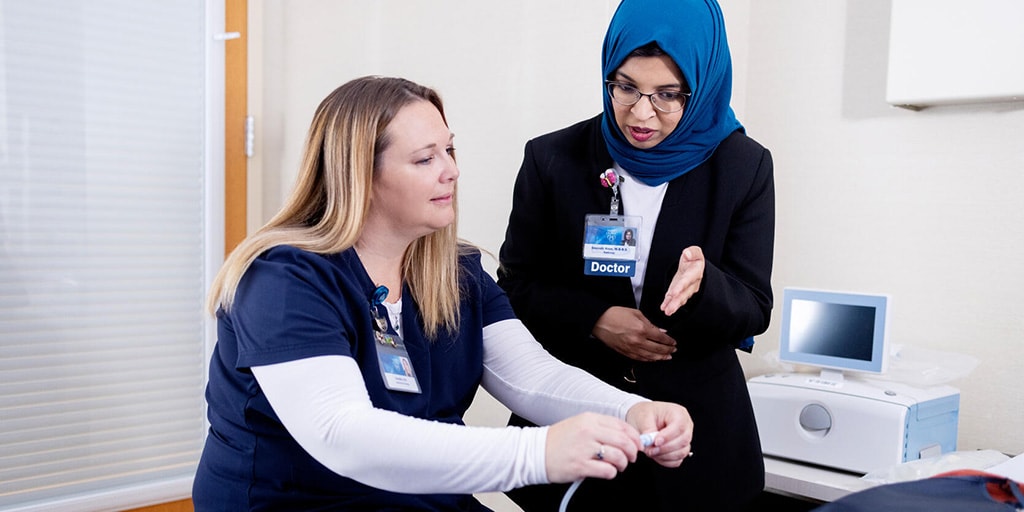
Hospital Services
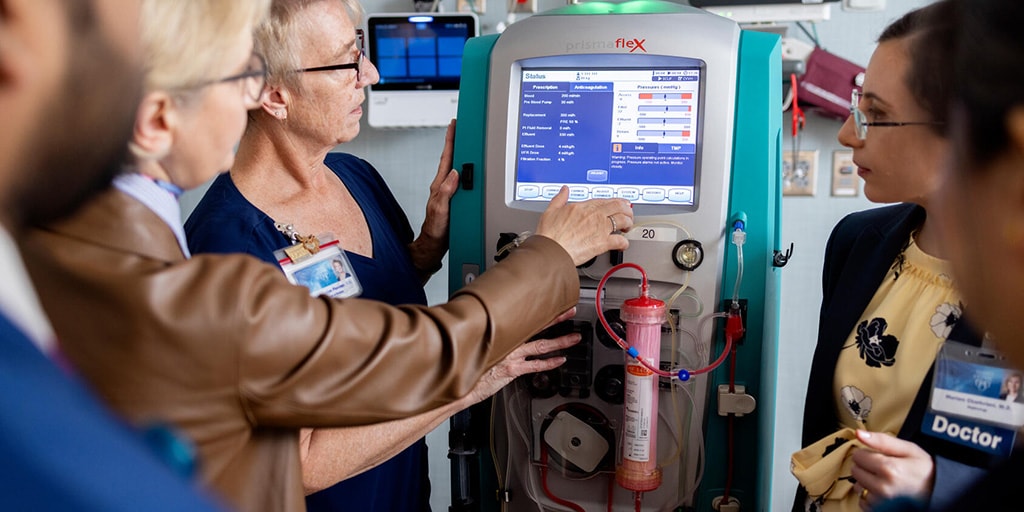
During hospital services, you will function as the first assistant to a staff consultant in evaluating and managing renal problems. The inpatient consultation services consist of the Saint Marys Critical Care Nephrology Consult Service, the Rochester Methodist Nephrology Consult Service, and two-to-three non-ICU Saint Marys Consult Services. Also, in conjunction with the transplant surgery team, you will be caring for post-transplant patients and living kidney donors on the Kidney/Pancreas Transplant Service.
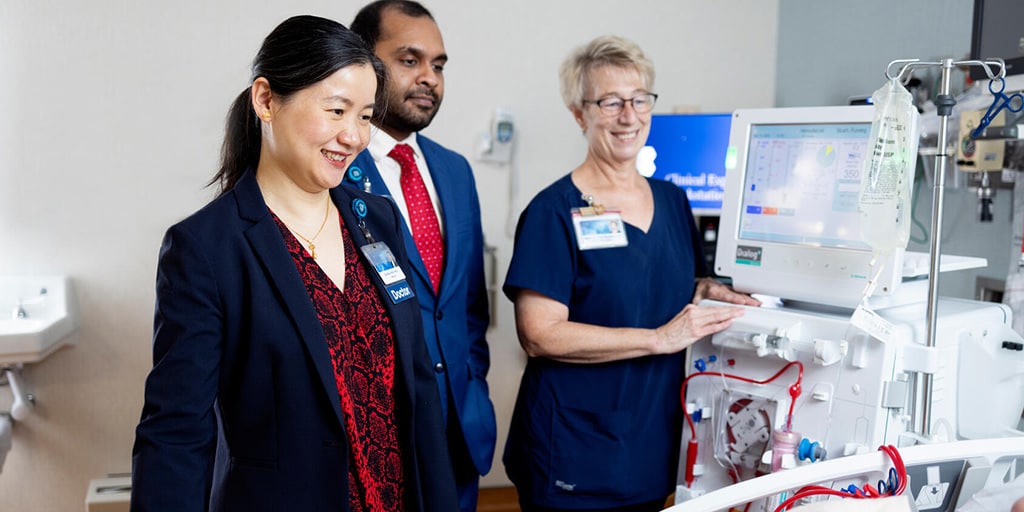
Outpatient Specialty Clinics
Outpatient Specialty Clinics in consultative nephrology, chronic kidney disease, glomerulonephritis, hypertension and obstetric nephrology, onco-nephrology, ADPKD, transplant, and nephrolithiasis clinics provide exposure to a wide variety of patient care problems.
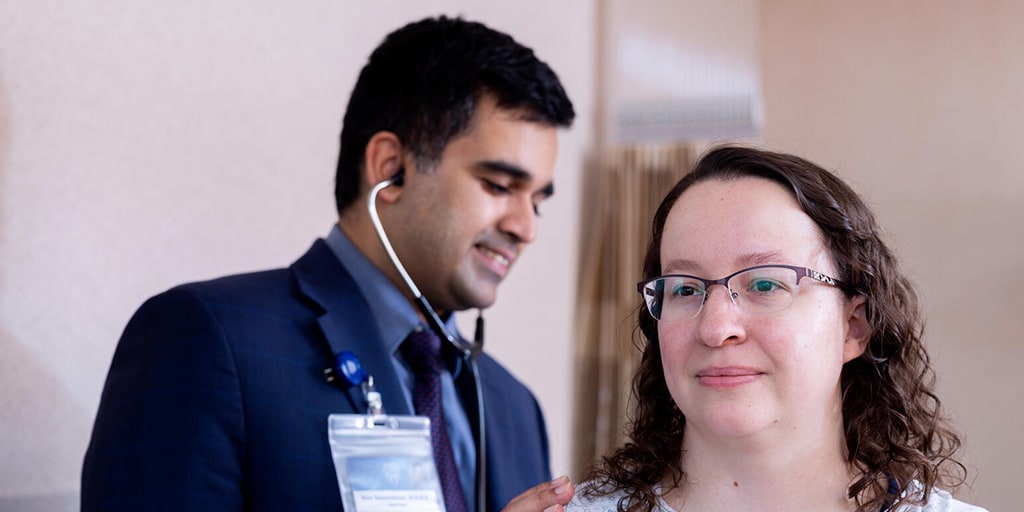
Palliative Care Experience
During the third year of fellowship, you will have a one-week Palliative Care experience. This rotation is designed to aid you in learning how to have critical conversations with patients and their families. You will work with our Palliative Care consulting physicians and their staff during this rotation.
Renal Biopsy and Point-of-Care Ultrasound
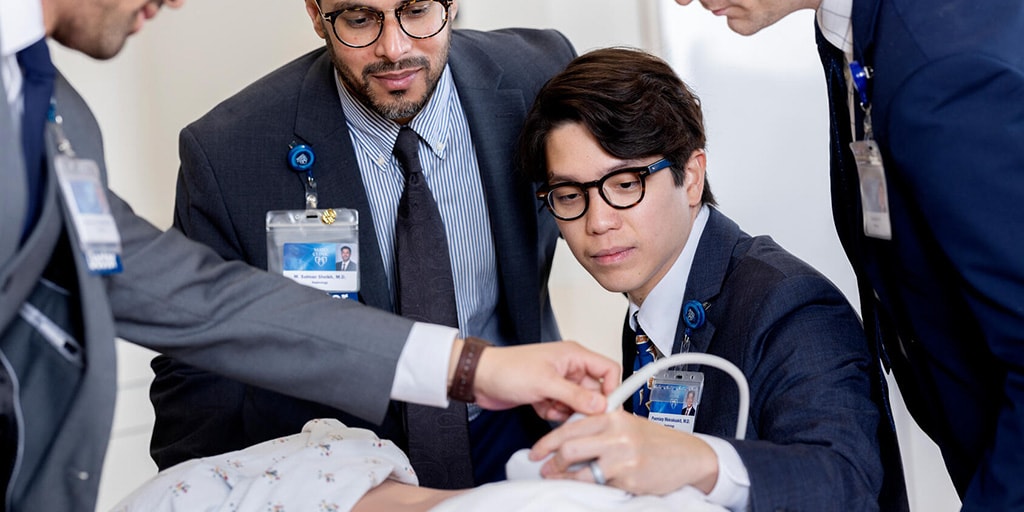
During this rotation, you will participate in conducting renal biopsies on Mondays, Wednesdays, and Fridays in the morning. In the afternoons and on Tuesdays and Thursdays you will participate in point-of-care ultrasounds (POCUS) in various clinical settings. You will gain familiarity in performing renal biopsies and POCUS during this rotation.
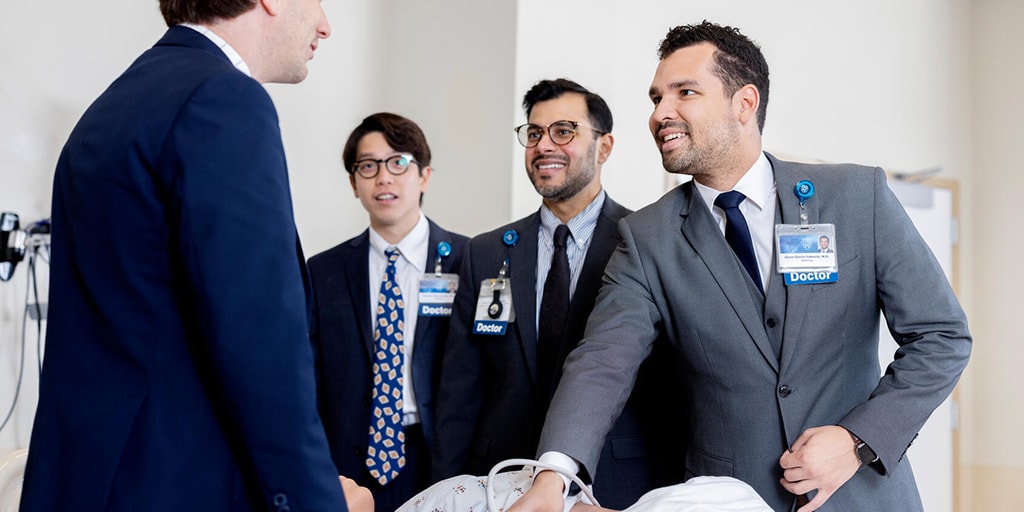
Renal Function Laboratory
During assignments in renal physiology and renal function testing, you will learn the physiology of the kidney under the direction of an expert staff nephrologist and physiologist; in addition, you will supervise special renal function tests of glomerular and tubular function and learn to interpret urinalyses.
Renal Pathology Laboratory
During the renal pathology rotation, you will learn to interpret renal biopsies through one-on-one interaction with experienced staff renal pathologists. Also, you will have the opportunity to learn the technique of ultrasound-guided native kidney and renal allograft biopsy under the supervision of staff radiologists.
Senior Dialysis Medical Director Experience
The purpose of this rotation is for trainees to gain experience in serving as a medical director for a dialysis unit. You will learn about administrative aspects, quality improvement, water treatment, disaster management, financial planning, communication with staff, and psychosocial issues that occur in dialysis units. The goal is to prepare you to serve in a medical director capacity after fellowship.
Tissue Typing Experience
During this rotation you will learn the basics of Tissue Typing through didactic training sessions and hands-on experience in our Tissue Typing laboratory.
Didactic Training
Clinical conferences, seminars, small discussion groups, journal clubs and one-on-one instruction are integral parts of the Nephrology Fellowship Program. During your training, you will attend the following:
- Monday
- Polycystic Kidney Disease Research Seminar
- Transplant Center Grand Rounds
- Tuesday
- Nephrology Hypertension Grand Rounds
- Wednesday
- Internal Medicine Grand Rounds
- Thursday
- Nephrology Trainee Core Conference Series
- Friday
- Nephrology Hypertension Journal Club
- Renal Biopsy Conference
- Monthly
- Nephrology Research Forum
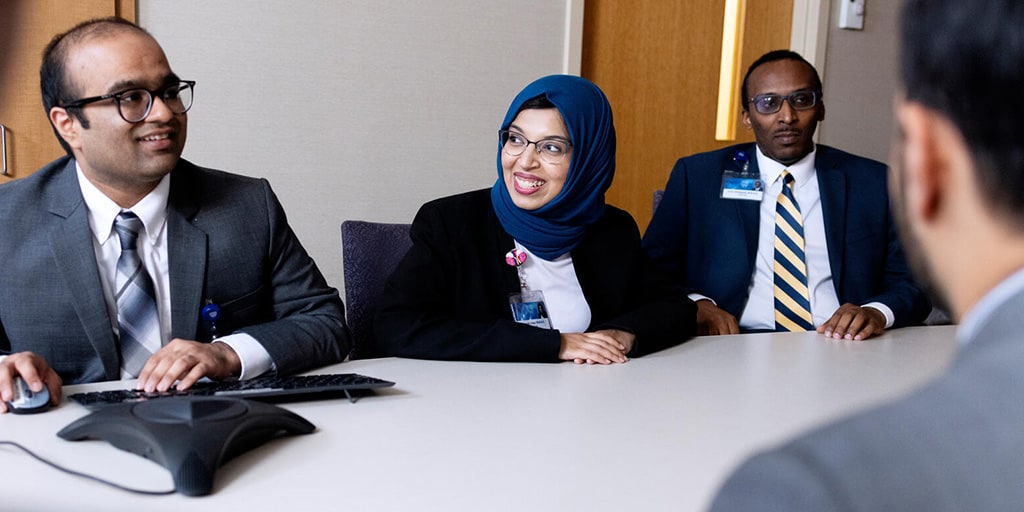
Teaching Opportunities
If interested, you may have the opportunity to teach basic and clinical nephrology in the Mayo Clinic Alix School of Medicine. During hospital rotations, you may supervise and teach internal medicine residents and medical students.
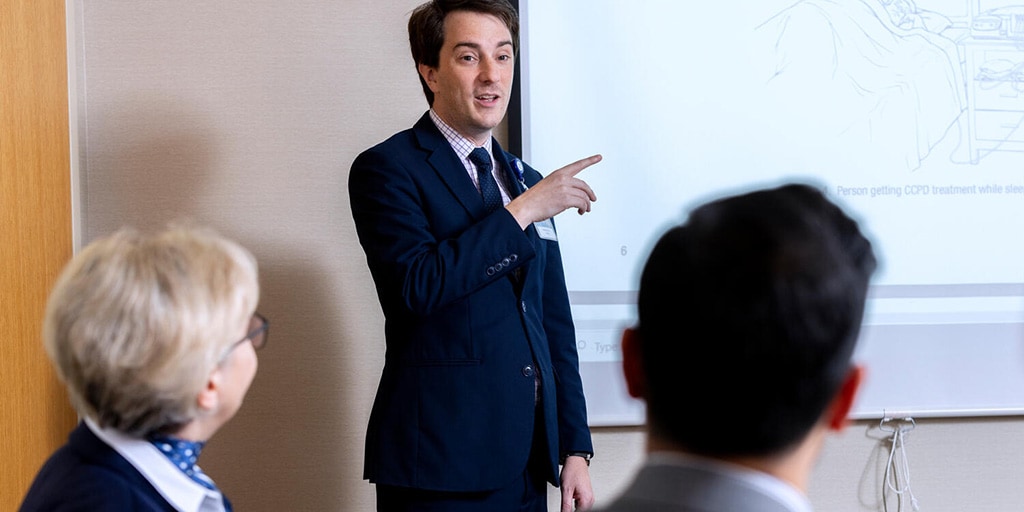
Additional Training Opportunities
Upon completing the Nephrology Fellowship, you may wish to consider further training opportunities at Mayo Clinic School of Graduate Medical Education.
Also see: